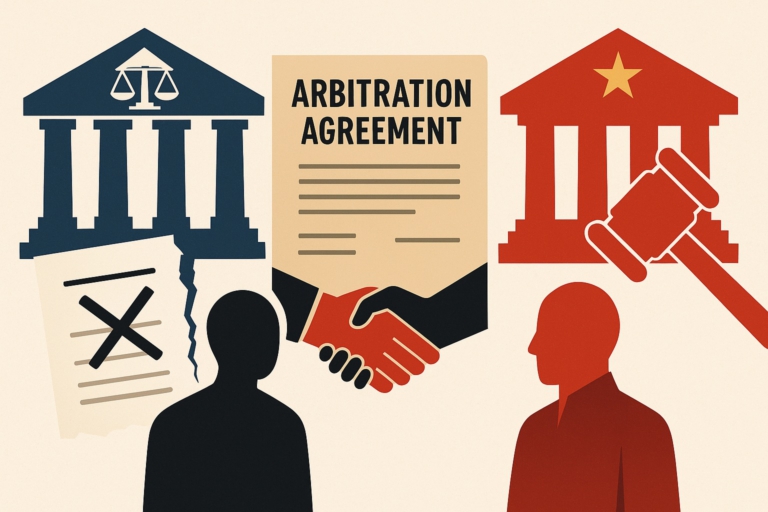
It costs less to sue in Chinese courts. Moreover, Chinese courts are trustworthy for the enforcement of commercial contracts.
1. It is not a cost-effective option to sue in your country
(1) Your time and costs will be doubled
If you make such a choice, you need to go through two steps:
First of all, you need to sue the Chinese supplier in your own country and win the case.
You also need to pay for the court and lawyers.
However, the assets of most of the Chinese suppliers are in China, and they often have no assets in your country. Therefore, in countries other than China, you can’t actually get compensation from Chinese suppliers with your judgment.
At this point, you need to go to China.
This is the second step you need to take: apply to a Chinese court for recognition and enforcement of your judgment.
This allows you to get compensation from Chinese suppliers’ assets in China. But that means you need to, once again, go through the legal proceedings in China.
In each step, you need to pay, among others, attorney’s fees and court costs, and spend time. By doing this, your cost in money and time surely double.
(2) The enforcement time of your judgment in China will be longer and the communication cost will be higher
At present, Chinese courts have limited experience in enforcing foreign judgments.
We have made statistics about this. So far, Chinese courts have only handled 72 foreign judgments from 24 countries. For more information, please read Can Foreign Judgments Be Enforced in China?
For a country with a huge economy like China, this number is pretty small.
Our team has conducted in-depth research[https://www.chinajusticeobserver.com/a/time-to-loosen-the-criteria-for-recognizing-and-enforcing-foreign-judgments-in-china] in this field. We are of the view that, in general, Chinese courts are increasingly open to applications for the enforcement of foreign judgments.
However, most local courts in China have no experience in handling such cases. This means that persuading them to do so requires huge resources.
So, why don’t you sue directly in China?
2. You can sue in China because Chinese courts are trustworthy in dealing with commercial contract disputes
Anyone who sues in another country will have doubts like: can I trust the courts of this country?
Especially for a country like China, whose language and judicial system are not familiar to foreigners.
The reliability of Chinese courts in commercial litigation is acceptable.
First, the World Bank’s Doing Business Report gives a positive evaluation for the contract enforcement by Chinese courts.
Although the Report is currently under challenge, the description of the Report does not deviate much from the actual situation on this issue.
In fact, in China, from private enterprises to multinational corporations, they all rely on this judicial system as their last resort for safeguarding business transactions.
Most of the time, this system is at least above the pass line in safeguarding business transactions.
The Cross-border Trade Dispute 101 Series (‘CTD 101 Series’) provides an introduction to China-related cross-border trade dispute, and covers the knowledge essential to cross-border trade dispute resolution and debt collection.
* * *
Do you need support in cross-border trade and debt collection?
CJO Global's team can provide you with China-related cross-border trade risk management and debt collection services, including:
(1) Trade Dispute Resolution
(2) Debt Collection
(3) Judgments and Awards Collection
(4) Anti-Counterfeiting & IP Protection
(5) Company Verification and Due Diligence
(6) Trade Contract Drafting and Review
If you need our services, or if you wish to share your story, you can contact our Client Manager Susan Li (susan.li@yuanddu.com).
If you want to know more about CJO Global, please click here.
If you want to know more about CJO Global services, please click here.
If you wish to read more CJO Global posts, please click here.
Original Link: Why Can You Turn To Chinese Courts for Disputes With Chinese Suppliers?
Contributors: Meng Yu 余萌









